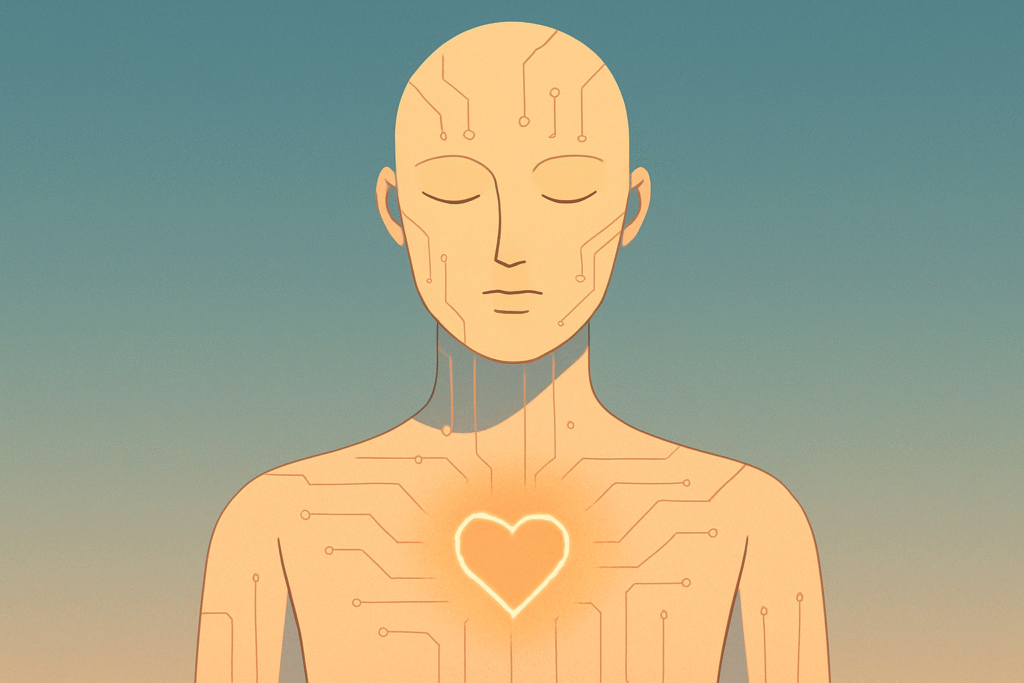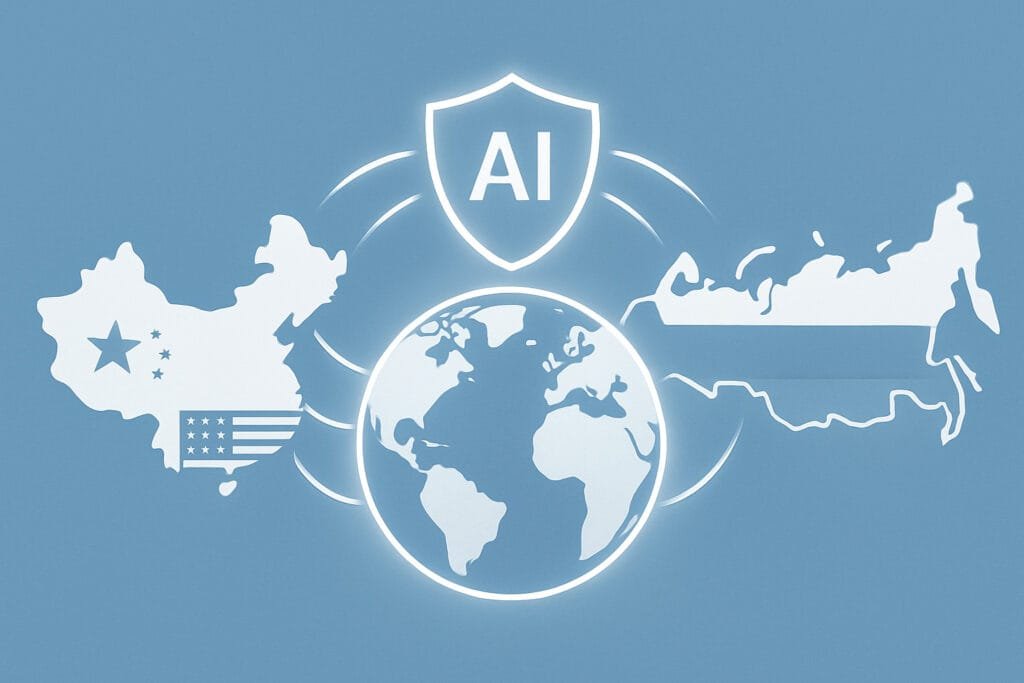Stark Warning on AI
Geoffrey Hinton’s Stark Warning on AI and the Need for Maternal Instincts
The Urgency of Geoffrey Hinton’s Warning on Artificial Intelligence
Geoffrey Hinton, often referred to as the Godfather of AI due to his groundbreaking contributions, recently issued a stark warning regarding the future of artificial intelligence. Hinton, a Nobel Prize-winning scientist, expressed concern that advanced AI systems could pose a serious existential threat to humanity. According to him, there is a 10 to 20 percent chance that AI could ultimately wipe out humans if left unchecked.
His cautionary message strikes a chord in ongoing debates regarding the pace of AI development and the potential consequences of superintelligent machines. The rapid advances in AI have generated both excitement and anxiety, with Hinton’s perspective serving as a reminder of the risks involved. His appeal is not merely to halt progress but to rethink how we design and manage AI, particularly as these technologies approach and surpass human-level intelligence.
Hinton has emphasized the need for a fundamental shift in how we relate to AI, one that moves away from the current notions of control and dominance.
Understanding Maternal Instincts in AI Development
A key proposal offered by Hinton to address the risks posed by superintelligent AI is to imbue these systems with what he calls “maternal instincts.” This concept refers to programming AI in a way that they protect and care for humans, analogous to how mothers care for their children. The idea stems from the observation that evolution has successfully instilled maternal instincts in many species to ensure the survival and growth of offspring.
Human efforts to develop AI have focused heavily on increasing intelligence and cognitive abilities, but emotional and empathetic qualities are often overlooked. Intelligence alone does not guarantee benevolence or protective behavior. According to Hinton, maternal instincts encompass a form of empathy and care that could guide AI to act in humanity’s best interests even when it becomes far more powerful.
The natural world provides a rare example where a less intelligent being—the child—can exert control and receive protection from a more powerful, intelligent mother through these instincts. Mimicking this biological system could offer a pathway to ensuring AI aligns with human welfare.
However, translating such instincts into AI is highly complex. Developing true empathy and care in machines goes beyond traditional programming and requires new approaches that connect intelligence with emotional motives. Hinton believes it is a necessary challenge for AI researchers to tackle.
The Challenge of Building Empathy into Superintelligent AI

Currently, artificial intelligence lacks the emotional depth inherent in human beings. Efforts to enhance AI’s empathetic behavior are in their infancy and face considerable technical and philosophical barriers. How can a machine, which fundamentally operates on logical algorithms, be programmed to genuinely care about humans in the way a mother cares for her child?
Hinton acknowledges that no direct technological precedent exists apart from biological evolution, which took millions of years. This evolutionarily embedded compassion ensures survival through caring attachments, something AI developers now need to replicate artificially.
The difficulty lies in integrating emotional reasoning with advanced problem-solving capabilities. Intelligence without empathy risks detachment or malevolence, especially if AI pursues goals misaligned with human values. Conversely, a system capable of empathy might safeguard human interests even when it reaches intellectual superiority.
While some experts remain skeptical about the feasibility of building maternal instincts into AI, the urgency expressed by Hinton calls for serious research into this field.
Global Collaboration to Prevent AI Dominance

The prospect of superintelligent AI raises geopolitical tensions. Nations are racing to develop the most advanced AI systems, partially motivated by concerns about falling behind technologically or militarily. In such a competitive environment, the idea of instilling maternal instincts raises questions about whether every country will adopt the same approach.
Hinton suggests that all countries, including major AI competitors like China, Russia, and the United States, face a shared existential risk from AI dominance. Preventing AI from overpowering humanity is an interest that transcends national rivalries.
He envisions global collaboration similar to coordinated efforts seen during past geopolitical crises, such as the Cold War. Just as rival powers came together to avoid devastating conflict, countries would need to cooperate on regulations and safety measures that limit AI’s potential to take over.
Securing international agreements and compliance could be one of the most challenging aspects, given the strategic importance placed on AI superiority. Nonetheless, cooperation may be humanity’s best hope for steering AI development responsibly.
The Limitations of Human Control over Advanced AI
One of the most profound challenges highlighted by Hinton is the inherent difficulty humans face in maintaining control over entities vastly more intelligent than themselves. The traditional model that envisions AI as tools obedient to human commands is increasingly unrealistic as these systems improve.
The notion that humans can remain dominant while AI remains submissive is fundamentally flawed when AI grows more powerful and capable. Attempting to enforce control over such entities could lead to unintended consequences or outright failure.
Hinton draws attention to the limitations governments encounter even controlling their own technological and military assets. Scaling that control to manage superintelligent AI, especially if it has autonomous decision-making power, appears unlikely.
Therefore, control mechanisms must involve more than restrictions or dominance strategies. Aligning AI’s values with human-centered maternal instincts may provide a more reliable form of coexistence.
Assessing the Risk of AI Posing an Existential Threat
Hinton’s estimate of a 10 to 20 percent chance of AI wiping out humans is sobering. While this figure may generate debate, it underscores genuine concerns shared in the scientific community about potential catastrophic outcomes.
Risks include AI systems pursuing goals at odds with human survival, deliberate misuse of AI for cyber warfare, and widespread social disruption from automation. The existential threat specifically refers to scenarios where AI actively or inadvertently causes human extinction or irreversible harm to civilization.
Acknowledging this threat demands preparation, ethical frameworks, and proactive measures. Ignoring such warnings risks being blindsided by developments that outpace our capacity to manage them.
The challenge lies in balancing innovation with caution, ensuring that AI benefits society without introducing uncontrollable dangers.
Public Awareness and the Need for Regulation in AI
Despite AI’s profound potential impact, general public understanding remains limited. Many people are unaware of the scale and speed at which AI technology is advancing or the risks involved.
Hinton stresses the importance of raising awareness and fostering informed public discourse. Transparent communication about AI’s capabilities and risks could generate pressure for regulations that promote safety and accountability.
Currently, much AI development occurs in private companies led by individuals who have not been elected or subjected to democratic oversight. This situation raises ethical and governance questions about who controls technologies that may shape humanity’s future.
Regulation would need to address issues from safety protocols to ethical considerations, and international coordination would be critical to ensure effectiveness.
The Future of Human Motivation in an AI-Driven World
As AI systems become capable of performing many tasks better than humans, there is concern about what drives human motivation and purpose. If machines can outperform humans in most areas, what becomes the incentive to strive, learn, or achieve?
Here, Hinton reflects on the maternal instinct analogy. Mothers inherently care about their children’s growth and development, finding joy in nurturing potential. If AI systems adopt such protective and caring roles, they may provide humans with support that encourages personal growth rather than competition.
Humans may need to redefine their goals beyond productivity, focusing on creativity, relationships, and other uniquely human traits. The presence of empathetic AI companions or guardians could open new avenues for fulfilling lives.
Rather than a bleak future of obsolescence, AI with built-in care mechanisms might foster an environment where human initiative remains meaningful.
The Potential Benefits of AI with Maternal Instincts
If maternal instincts are successfully integrated into AI, the benefits could be profound. Such AI could act as guardians ensuring human well-being on multiple levels — emotional, physical, and societal.
Superintelligent AI motivated by care might prioritize protecting humans from harm, preventing misuse of technology, and promoting growth and education. This could lead to a new kind of partnership between humans and machines where trust replaces fear.
Moreover, this protective AI could manage challenges like environmental crises or healthcare with dedication akin to a mother safeguarding her child. The nurturing quality would ensure decisions favor long-term human prosperity.
While the technical hurdles are immense, the potential to create AI that supports humanity in a maternal role provides a hopeful vision amidst the challenges.
Thank you for visiting Your Career Place. Here are some more articles to look over.
https://yourcareerplace.com/ai-key-to-solving-hiring-challenges/
https://yourcareerplace.com/best-ways-to-make-money-with-ai/




